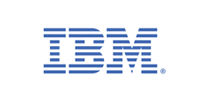
Data engineering is a growth tech segment, with considerable demand for skilled data engineers. Data engineering makes quality data available for business operations, business intelligence and data-driven decision making.
Read more
Data engineering is a growth tech segment, with considerable demand for skilled data engineers. Data engineering makes quality data available for business operations, business intelligence and data-driven decision making.
Data engineering is a growth tech segment, with considerable demand for skilled data engineers. Data engineering makes quality data available for business operations, business intelligence and data-driven decision making.
This six-course Professional Certificate from IBM is an excellent base for those interested in a career in data engineering. Through these data engineering courses, you will learn the core principles and get to practice your new skills with hands-on labs. You will learn about the data engineering ecosystem, data integration pipelines, data repositories, Business Intelligence and Reporting tools. You will understand Data repositories, such as relational and non-relational databases, data warehouses, data marts, data lakes, and big data stores, as well as how to store and process this data.
The certificate starts with an introductory course, then progresses through how Python is used by Data Scientists, in Artificial Intelligence and Development, and gives you the opportunity to create a Python project to put these skills into practice. The certificate then covers relational databases and SQL.
This Professional Certificate does not require any prior programming or data science skills. These online learning tools will provide you with practical skills and experience in collating data from data sources for factual analysis and providing organizations with the basis for data-driven decision making.
What you'll learn
- What data engineering is, what the modern data ecosystem looks like, and the data engineering lifecycle. You will also be provided with a taste of a day in the life of a Data Engineer and tips from professionals on starting your career in this discipline.
- The fundamentals of Python programming, including data structures, the use of files, invoking APIs and libraries such as Pandas, NumPy and performing extract, transform and load (ETL) processes.
- The principles of relational databases including Database Design, creating tables, using constraints, and working with MySQL, PostgreSQL & IBM Db2.
- How to use Structured Query Language (SQL) to query a database. Use SELECT, INSERT, UPDATE, and DELETE statements, database functions, stored procedures, work with multiple tables, JOINs, and ACID transactions.
What's inside
Six courses
Python Basics for Data Science
(21 hours)
Python Basics for Data Science
(21 hours)
SQL for Data Science
(12 hours)
SQL for Data Science
(12 hours)
SQL Concepts for Data Engineers
(4 hours)
SQL Concepts for Data Engineers
(4 hours)
Relational Database Basics
(10 hours)
Relational Database Basics
(10 hours)
Data Engineering Basics for Everyone
(38 hours)
Data Engineering Basics for Everyone
(38 hours)
Python for Data Engineering Project
(4 hours)
Python for Data Engineering Project
(4 hours)Save this collection
OpenCourser helps millions of learners each year. People visit us to learn workspace skills, ace their exams, and nurture their curiosity.
Our extensive catalog contains over 50,000 courses and twice as many books. Browse by search, by topic, or even by career interests. We'll match you to the right resources quickly.
Find this site helpful? Tell a friend about us.
We're supported by our community of learners. When you purchase or subscribe to courses and programs or purchase books, we may earn a commission from our partners.
Your purchases help us maintain our catalog and keep our servers humming without ads.
Thank you for supporting OpenCourser.



